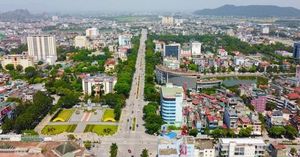The Middle East has been once again plunged deep in unrest as the conflict between Israel and Hamas escalates, changing the dynamics of the region and drawing stark reactions from the international community. The reports of intense military activity over the last few months have seen unprecedented civilian casualties and widespread destruction, raising urgent calls for action from world leaders and humanitarian organizations alike.
An Israeli historian, Lee Mordechai, has made alarming claims, stating outright, “Israel is committing genocide against the Palestinian population in Gaza.” By compiling data, records, and testimonies, he has created what he describes as both evidence and documentation of the extensive human rights violations occurring during this conflict. His report includes shocking information on the treatment of detainees, including forced acts of dehumanization and violence exerted against civilians caught up in the crossfire.
Mordechai's findings are part of the academic discourse around the Gaza situation, expressing disbelief at the extent of violence and bystander complicity among Israeli society. He observed, “The overwhelming evidence points toward systematic ethnic cleansing of the Gaza Strip, with the aim of rendering the area uninhabitable.” Such claims have been echoed by numerous humanitarian groups, who consistently warn about the dire circumstances faced by those living under siege.
A report highlights the brutal nature of the military operations occurring since the conflict reignited. The destruction of civilian infrastructure has been rampant, with thousands of buildings demolished and basic services crippled. The emphasis on tactical warfare has left medical facilities, schools, and water systems devastated. This scenario has incited outrage and led various international organizations like Amnesty International and the United Nations to condemn Israel's actions, characterizing them as war crimes.
“We have witnessed hell unleashed upon the people of Gaza,” said one official from Amnesty International. The call for accountability grows louder as accusations wade through conferences and media outlets, yet effective changes seem elusive. Despite the accusations and evidence presented, Israel’s military continues its operations, encouraged by what appears to be unwavering support from the United States government.
This support from the U.S. has always been significant, providing military, diplomatic, and financial backing throughout Israel's military campaigns. Analysts suggest this relationship has emboldened the Israeli government, allowing it to pursue its aggressive military strategies with near-impunity. “U.S. support has enabled Israel to conduct operations without serious oversight,” Mordechai observed, noting the lack of consequences for reported actions against civilians within Gaza.
Meanwhile, on the global stage, responses are starting to manifest politically, advocating for peaceful resolutions and humanitarian aids. Efforts led by various NGOs aim to deliver supplies to those affected, as well as support organizations, such as the Red Cross, already present on the ground. Yet, the transportation and distribution of aid remain dangerously hampered by unstable conditions and military operations.
Attempts for dialogues and peace talks have been sporadic and marked by tension, especially when conflicting parties senselessly clash. One notable incident occurred recently when the UN attempted to facilitate discussions, significantly emphasizing the need for ceasefire negotiations, only to face backlash from involved parties frustrated with the current impasse.
Another layer to this conflict includes the rising voices of those on campus and protest circles worldwide. Activism against the Israeli actions has surged, with grassroots movements demanding justice for Palestinian rights. Universities have become battlegrounds for pro-Palestinian protests, with some institutions reportedly hiring firms to monitor and suppress dissenting voices from supporters of Palestine. This framework of concern over freedom of speech has created more significant divisions, putting younger activists at the forefront of political discourse.
Despite the growing turbulence, President Biden has faced criticisms from all sides, with some claiming he has not done enough to hold Israel accountable. Simultaneously, others argue his administration’s protective stance is hurting long-term peace efforts, opting instead for continued military backing of Israel. The balance remains increasingly difficult to navigate. While there is some political will within the Democratic Party to support Palestine’s plight, it must contend with powerful pro-Israel lobbies.
The anger surrounding this issue is significant, even causing schisms within political affiliations. Recent polls indicate many American citizens are starting to rally for Palestinian rights, reflecting broader changes occurring in social consciousness. The shift has been especially pronounced among younger voters, who express their frustrations at both political parties.
Public sentiments have evolved over the last few years, incited by the growing presence of information due to social media and instantaneous news cycles highlighting the plight of Gazans. Many cite the increase of visibility concerning human rights abuses as the major factor leading to changing attitudes. The outcry from social media campaigns has been deafening, exemplified by trending hashtags and viral content illustrating the harsh realities of life under siege.
Internationally, the response has varied widely. Some nations have stepped up to offer public condemnation of Israeli policies, denouncing actions taken against civilians and questioning the legality of airstrikes on populated areas. These nations have called for urgent discussions within the United Nations, seeking resolutions addressing the grievances felt by Palestinians.
One central question persists at the heart of this discontent: what can be done to effectively bring about change? With the voices of countless activists and scholars growing more urgent, the hope lingers for diplomatic pathways leading toward negotiations and rebuilding for the future. Middle Eastern politics remain steeped in deep historical roots, and many of these underlying issues seem far from resolution.
Mordechai’s report, underscoring systemic violence against Palestinians, is clear: communities cannot thrive where humans are dehumanized, and the echoes of this conflict will carry long past the current hostilities. The global community has begun to face the uncomfortable truth about its role and responsibility. Therefore, the question remains whether there will be enough political will to influence significant change or if the tragic narrative of Gaza will continue to replay. The reality faced by the people of Gaza hangs heavily on the world’s conscience. Only time will reveal if this awareness translates to actionable policies to protect their lives and rights moving forward.



